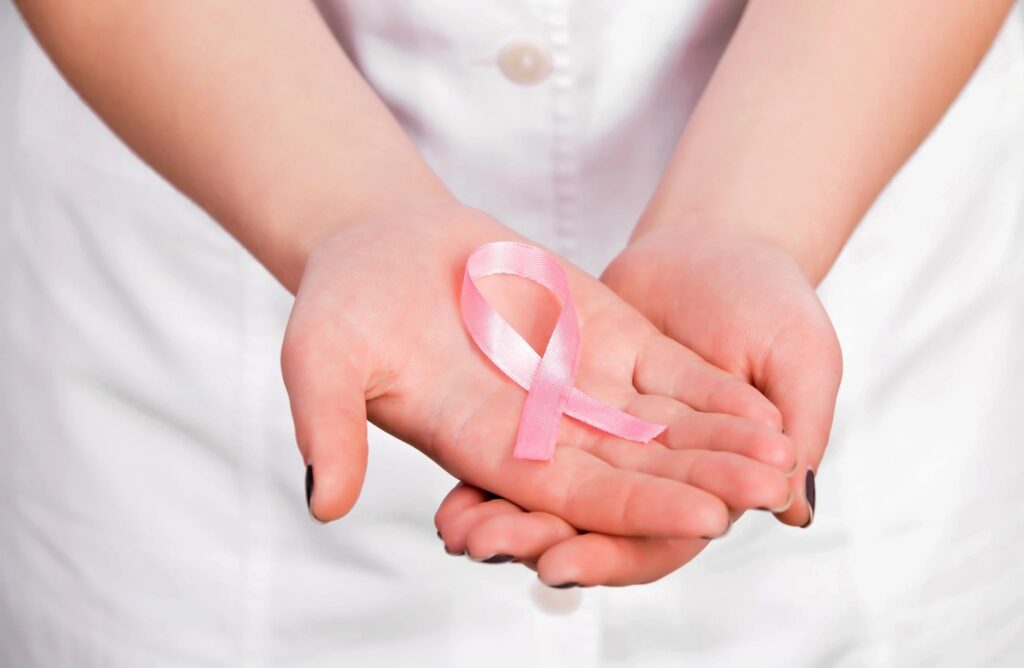For Breast Cancer Awareness Month, the physicians at Arizona Diagnostic Radiology and Breastlink want you to take charge of your breast health!
According to the American Cancer Society, one in eight women in the United States will have breast cancer at some point in her lifetime. Breast cancer is the second leading cause of cancer death in women (behind lung cancer) and in recent years, incidence rates of breast cancer have been increasing, especially in women younger than 50.
Studies have long shown that when it comes to breast cancer, early detection is the key to survival. Women are advised to begin screening mammograms at age 40 which, according to the CDC, have been shown to reduce breast cancer death by 22%, if maintained regularly.
If breast cancer is detected early, the 5-year survival rate is 99% (ACS). This data points to what has long been held by experts, including the physicians at Arizona Diagnostic Radiology (AZDRG) and Breastlink, that the sooner a doctor finds a woman’s cancer, the more likely she is to survive.
With all this being said, let’s get real and take a look at some important facts everyone should know about breast health.
- Screening: Mammograms are the gold standard for early detection of breast cancer. In a study published in 2021, women who maintain their regular screening mammogram schedules prior to a breast cancer diagnosis are more likely to survive than women who delay or abandon screenings.
- Breast Density: Dense breast tissue is a significant risk factor for breast cancer. In fact, it has been associated with up to four times the risk for breast cancer. (NIH) While extremely common, dense breast tissue can also make it difficult to detect cancer using traditional mammography alone. On a mammogram, both dense breast tissue and potential cancers appear as a white spot. In these cases, additional screenings are often recommended, such as breast ultrasound or breast MRI.
Dense breast tissue refers to the amount of fibroglandular and fibrous connective tissue that’s present within the breast, as compared to fatty tissue. When there’s more glandular and fibrous tissue than fatty tissue, breasts are considered dense.
The only way to tell if a woman has dense breasts is with a mammogram.
- High-Risk: A woman’s risk of developing breast cancer increases if she has biological relatives who have been diagnosed with breast cancer or if she has family members with known genetic mutations, such as BRCA1 or BRCA2. (ACS)
More than 60% of women who inherit genetic mutations, such as BRCA1 or BRCA2, will develop breast cancer during their lifetime. (NIH)
By understanding the importance of family history in assessing breast cancer risk, women can take proactive steps towards early detection and treatment. Women with a strong family history of breast cancer should discuss additional breast screening options with their healthcare providers to ensure optimal breast health.
- Advanced Imaging: At AZDRG and Breastlink, we offer patients the opportunity to take their screening mammograms one step further with the addition of Artificial Intelligence. The Enhanced Breast Cancer Detection (EBCD) program combines artificial intelligence (AI) technology with a rigorous clinical review process to deliver greater accuracy in breast care. The AI helps radiologists detect subtle lesions in the mammogram during the review process. Since first introducing the program in January, 2023, over 400 breast cancers have been detected at an earlier stage using the EBCD review process and it has also been shown to lower recall rates.
- Comprehensive Breast Health: A study published in the prestigious journal Science Direct showed that better clinical outcomes come from integrated breast programs, and that having dedicated breast experts result in improved patient outcomes with fewer complications and recurrences, when compared to non-specialists.
At AZDRG/Breastlink, our model of comprehensive services offers patients the full circle of care, from imaging with Artificial Intelligence, to risk assessment and genetic testing, to surgery and oncology. All of our physicians are fellowship trained experts in their field, focused on one common goal: providing patients with the highest-quality breast health services.
When it comes to breast cancer, early detection is the most effective key to survival. And when considering optimal breast health, arming yourself with as much knowledge as possible and relying on specialty trained experts is the best way to really take charge of your health!


